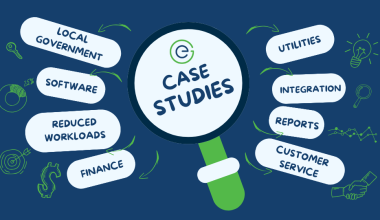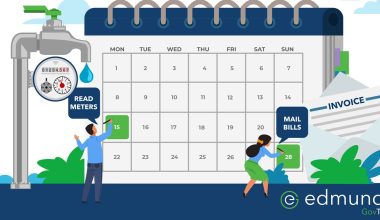In my experience, most utilities review their rates regularly – in many cases, every year. While they may not conduct a full rate study each year, utilities that review their rates annually are best prepared to ensure that their revenue needs will be met every year. If your utility is one that reviews your rates each year, I congratulate you. If not, I strongly encourage you to do so.
Do you review your fees as frequently as you do rates?
Now that you are in the habit of reviewing your rates annually, how long has it been since you’ve revised your fees? So, it’s been a little longer, has it…? In my interactions with utilities, I find that many do not revise their fees nearly as often as they review their rates.
Fees provide most utilities with their second-largest source of revenue, so why not review them frequently? When I ask that question, I often get an answer along the lines of “that’s what we’ve always charged” – a variation on what I call the TTWWADI (that’s the way we’ve always done it) syndrome. Look at it this way – if these utilities took the same approach to rates, they would be out of business!
User fees impact only users of the service
Rate increases impact all customers, but user fees, by definition, only affect the users of the service. Accordingly, fee increases usually don’t generate the negative publicity that often accompanies a rate increase.
For example, who, besides the individual being charged the fee, is going to get upset if you charge customers who write bad checks the maximum amount allowed by law in your state?
Does your cut-off or reconnect fee cover your costs?
In an earlier Utility Information Pipeline issue, I wrote about cut-off fees and some factors to take into consideration when determining if your cut-off fee adequately recoups the cost of administering the cut-off and subsequent reconnection. If you haven’t analyzed your cut-off fee recently, I recommend that you do.
Are you missing out on additional sources of revenue?
Do you charge an application or connection fee when a new customer applies for service? If not, you are missing out on a potential source of revenue. You incur a cost for the time it takes to process a new customer’s application and to send a field technician out to read the meter, so why not recover that cost by charging the customer a fee?
Likewise, if you have customers who repeatedly complain about their bill and request that you re-read their meter, do you charge for this? Some utilities have a policy of one free re-read. After that, if the customer requests their meter be re-read and the original reading is determined to be correct, the customer is charged for the re-read.
What about security deposits…?
While you are looking at updating your fees, should you also take a look at how much you charge for a security deposit? As rates increase, security deposits must also increase accordingly to keep pace, or else you risk incurring bad debt. I wrote in more detail about this a previous issue and you can read it here if you missed it.
Is it time to review your rates and fees…?
If you haven’t reviewed your rates and fees lately, it may be time to do so.


